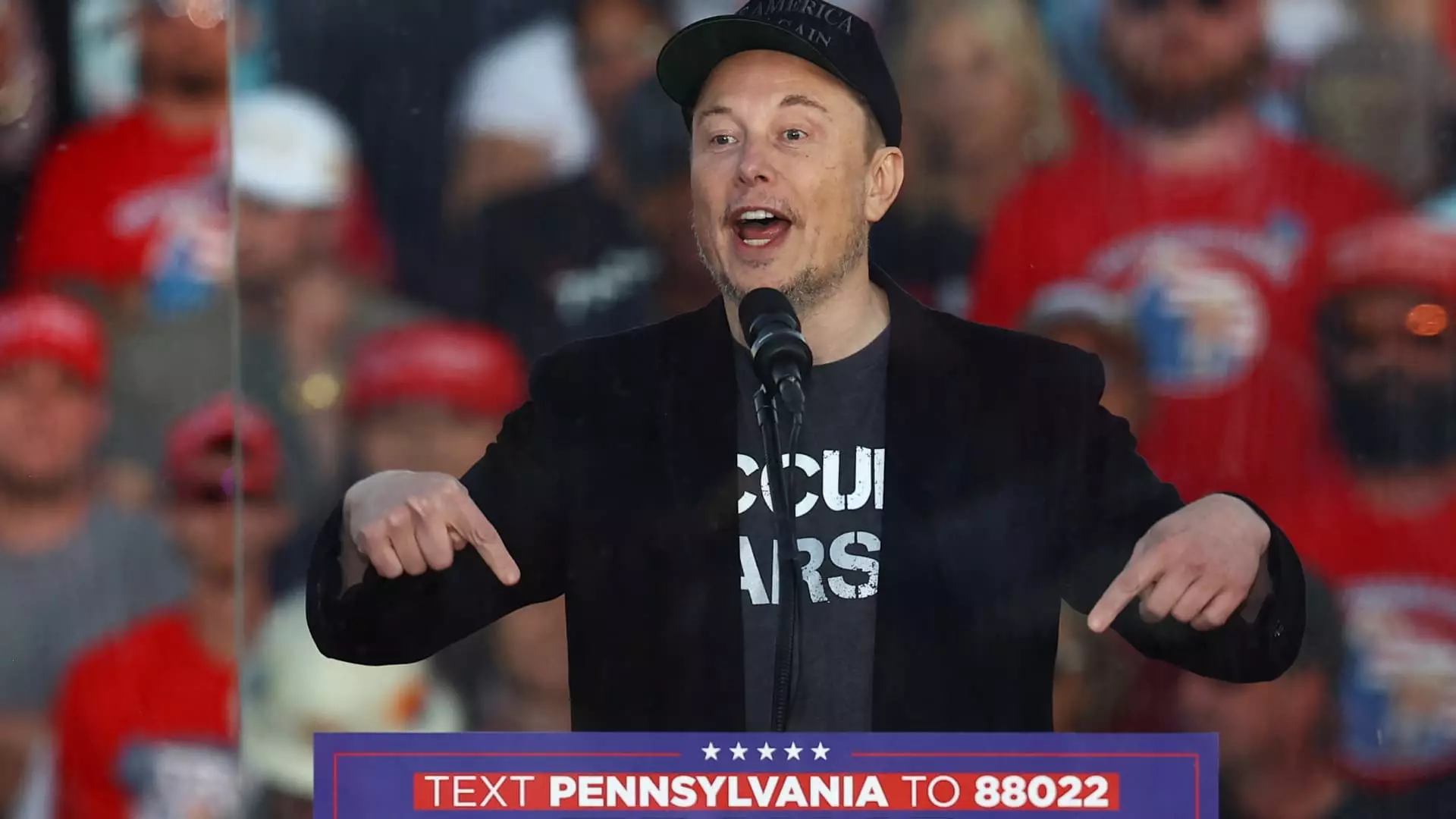In the rapidly evolving landscape of American electoral politics, few figures are as polarizing as Elon Musk, the CEO of Tesla. His recent endorsement of Donald Trump, coupled with a controversial initiative aimed at boosting Trump’s campaign through a monetary incentive for voter referrals, has sparked intense debate. The program, which offers participants a $47 referral bonus for each registered swing-state voter they can sign up for an online petition, raises critical questions about the ethics of campaign financing, data privacy, and the integrity of the electoral process.
The Mechanics of the Referral Program
The announcement was made through a post on X, the social media platform Musk owns, where he touted the initiative as “easy money.” It certainly attracted attention, but the subtle undertones of this offer suggest more than just a chance to earn money; it poses deep implications for voter engagement and manipulation. The petition itself seeks the personal contact information of swing-state voters but lacks clarity regarding its purpose or its intended recipients. Such vagueness is troubling, especially given the historical significance of petitions within electoral processes, which traditionally advocate clear demands and transparent accountability.
The states targeted, including Pennsylvania, Georgia, and Arizona, are pivotal in determining the outcome of the presidential election. These states are often viewed as battlegrounds where the margin of victory is razor-thin. However, Musk’s approach seems to reduce the intricate political fabric of these swing states into mere transactional relationships, where financial incentives drive engagement rather than genuine political discourse or activism.
The referral program is not Musk’s first foray into the political arena with the America PAC; it previously faced scrutiny after allegations arose that it solicited voter information under false pretenses. This history raises red flags about the motivations behind the referral program and the potential for exploiting voter data for political gain. The lack of transparency in how this data will be stored, used, or even shared is distressing, particularly in an era where data privacy is of paramount concern to many Americans.
Furthermore, the program’s approach to data collection seems to dance dangerously close to manipulation. While incentivizing civic engagement is a practice that can lead to increased voter turnout, tying financial rewards to actions that collect personal information from voters places a transactional nature on civic duty. It commodifies engagement in a way that could detract from its significance, transforming passionate advocacy into a mere hustle for cash.
Musk’s declaration that this is “no ordinary election” positions his initiative within a larger narrative of existential stakes, framing Trump’s potential victory as vital for protecting democracy and constitutional rights in the country. This rhetoric is not uncommon in political campaigns, as candidates often elevate the stakes of electoral outcomes. However, the manner in which this message is conveyed—through monetary compensation for support—suggests a troubling shift in the normative expectations of political engagement.
If financial incentives become standard practice in political campaigns, the potential for corruption and the degradation of democratic ideals grows. Such practices could incentivize the spread of misinformation or the exploitation of vulnerable populations who may be coerced into signing petitions without fully comprehending the implications.
This controversy crafted by Musk and the America PAC reflects further evolution in campaign strategy, particularly in the age of social media and information technology. The blend of technology, social media, and politics is reshaping how campaigns are run, often leading to practices that challenge traditional ethical norms surrounding fundraising and voter engagement.
As the election approaches, it will be crucial for Americans to critically evaluate not only the strategies employed by candidates but also the underlying motives driving these initiatives. Transparency, accountability, and a commitment to preserving the integrity of the electoral process must be priorities for all participants in the political arena, lest the sanctity of democracy be compromised.
While innovations in campaign engagement may hold positive potential, the initiative led by Musk signifies a concerning trend that requires rigorous scrutiny and extensive debate. Only through careful examination can voters ensure that the upcoming election reflects the true spirit of democracy, free from financial manipulation and exploitation.


Leave a Reply